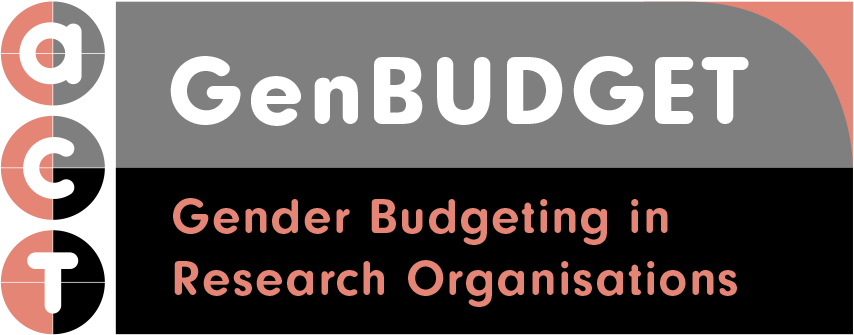Sometimes it feels like everything has changed ‘since Covid’; at other moments, it’s easier to think that nothing has changed, or certainly not for the better. This is especially the case for gender equality in research organizations. An enormous amount of evidence has been generated already over the last six months, provoking significant discussion in our field, since the World Health Organization declared a pandemic on 11th March. Many working in research organizations, and observers like this those in this group, have noted the ‘sharpening’ of experience as gender inequality is brought into the light by rapid changes to working practice. Government policies and employer responses to Covid-19 provide excellent insight into gender inequality as they are implemented, often without consideration of existing or potential gender inequalities.
Where we work in the UK, there have been three key areas of embedded gender inequality that the pandemic has made more visible:
1. combining work and care responsibilities;
2. negotiating a balance of research activity with other institutional commitments such as teaching or citizenship;
3. occupational segregation.
Fortunately we have a rapidly developing research base that allows us to understand these and other forms of gender (in)equality during this pandemic. However, we also want to look forward, based on our and others’ observations to suggest what we can continue to think about, research, and design policy to mitigate:
Observation 1: ‘Covid-normal’ ways of working (sporadic lockdowns, increased homeworking) are likely to impact differentially on research productivity and potential career progression.
Observation 2: Recent equality gains are under threat from increased economic uncertainty in those parts of higher education most exposed to ‘the market’.
Observation 3: Covid-normal ways of working in research organizations have had significant short-term effects, and will continue to have effects for a long time to come.
It is already clear that colleagues belonging to more vulnerable groups, such as women with caring responsibilities, younger or earlier career colleagues with less institutional authority, often working on short-term contracts and dependent on a steady stream of research publications, and Black, Asian, or Minority Ethnic colleagues already facing significant barriers, are more exposed to negative work and career effects. These groups of colleagues are often given more responsibility for the everyday maintenance of research organizations – making new technologies work for everyone, teaching online across international time zones and providing additional pastoral care for undergraduate, postgraduate and research degree students. These dynamics, including debilitating feelings of professional guilt and failure when tasks go undone or are done ‘just good enough’, result in a fundamental lack of time, especially the most valuable, extended uninterrupted time, for conducting and writing up research.
In addition, sudden unexpected domestic responsibilities, such as home-schooling children of different ages, or running a household in a different way, create more fragmented working time. This is also evident in experiences on the ‘other side’ of Covid-normal - those of us with few responsibilities outside work, often more senior colleagues and/or men, having more time for research, and therefore being more productive. Organizationally, as always, the volume of new teaching design and delivery is unequal, showing us a junior/senior staff distinction. This is especially striking in research organizations such as ours where the majority of junior staff are women, while most senior staff are men.
Longer term, there is considerable (valuable) anecdotal evidence of an increase in journal manuscript submissions in our field; however this increase is driven by men, as fewer women submit research. Similarly, responses to short-deadline calls for research funding proposals are dominated by men, especially those with fewer care responsibilities or limited teaching and institutional citizenship commitment. These two emerging tendencies mean that pre-Covid inequalities are being both immediately reinforced and built into the future for years, if not decades.
With these gloomy observations, what do we look forward to? Do we see a long Covid-tail of differential productivity, probation outcomes, promotion applications, contractual vulnerability, career outcomes, workplace stress, and increasing gender inequalities? Possibly. If gender budgeting or gender analysis are not part of the policy debate from the start, old inequalities can be reinforced, even as new inequalities are created. But of course there is an alternative Covid-normality that we can all work towards, based on careful gender budgeting, gender analysis, and a continuation of progress made towards greater equality. Unlike many things right now, that’s in our hands as human agents, in our ability to provide evidence and analysis that is difficult to ignore.
Sources
Work/life balance
UK Office for National Statistics: ‘Parenting in lockdown: Coronavirus and the effects on work-life balance’ report, July 2020
https://www.ons.gov.uk/peoplepopulationandcommunity/healthandsocialcare/...
Care responsibilities and career
Institute of Education, University College London: ‘Parental involvement in home schooling and developmental play during lockdown’ report, July 2020
https://cls.ucl.ac.uk/wp-content/uploads/2017/02/Parental-involvement-in...
See also news report here: https://www.theguardian.com/education/2020/jul/30/women-put-careers-on-h...
Research productivity
Inside Higher Ed report ‘Early journal submission data suggest COVID-19 is tanking women's research productivity’ April 2020
https://www.insidehighered.com/news/2020/04/21/early-journal-submission-...
See also news report May 2020: https://www.theguardian.com/education/2020/may/12/womens-research-plumme...
Unpaid work
Joint Research Centre Science for Policy ‘How will the Covid-19 crisis affect existing gender divides in Europe?’ report
"The outbreak has increased the need for care work both outside and inside homes in an unprecedented manner. As “normally” women do a disproportionally large share of the unpaid work in most of the EU countries, there is a great risk that they will take up the major part of the increased responsibilities as well. If forced to reduce work hours or unable to deliver properly while teleworking – not only their wellbeing but also their longer-term labour market prospects will suffer... However, the crisis did not induce risks only, it also created some new opportunities to move towards a more gender-neutral distribution of work. Teleworking men are in a very good position to observe the unpaid labour usually carried out by female household members and to start sharing these duties."
https://publications.jrc.ec.europa.eu/repository/bitstream/JRC120525/cov...
UK Economic & Social Research Council Covid-related funding – listing of research funded since April: https://esrc.ukri.org/funding/funding-opportunities/research-and-innovat...
Fiona Carmichael, Scott Taylor
University of Birmingham
